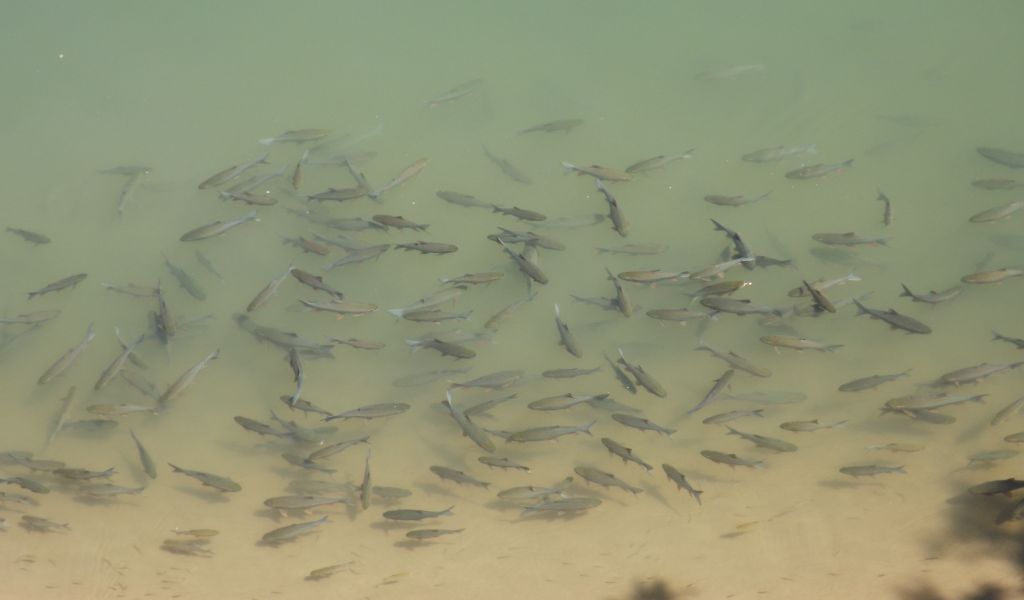What can we do to protect fish and other aquatic animals?

Ms Chanthaphone Ounkhamthip, a student in Vientiane: I feel we do quite a lot to protect aquatic animals, especially fish, because there are many conservation areas in rivers and ponds and recently the southern regions have prohibited the use of bamboo fish traps. But the authorities need to do more to stop fishermen using electrical devices to kill fish in large numbers, which has become common practice. These days it’s rare to see wildlife such as wild boars, deer, and civet cats in Laos but we see them on sale in markets, even though it’s illegal. We should get serious about this problem and think about what we can do to stop the hunting and selling of wildlife and make people respect the law.
Mr Onsy, a resident of Naxaithong district, Vientiane: I don’t often hear about problems with wildlife, but I know that aquatic creatures are sometimes killed because harmful chemicals are discharged or leach into rivers from factories and banana plantations. Many animals have died and some water plants also died after rivers became severely polluted. People who live by rivers also have problems, such as those who collect and sell riverweed. Some people had to stop doing this because the riverweed could not grow any more. When wildlife and aquatic species are affected it makes things difficult for local people and can deprive them of sources of income.
Mr Huck Saphomphone, a resident of Luang Prabang province: Both aquatic creatures and wild animals have decreased in number across Laos. There are many reasons for this, including the fact that they are in high demand. We know it’s illegal to hunt and sell animals but many markets, both in rural areas and towns, continue to sell them. The authorities should do more to stop the trade in wildlife by punishing both hunters and sellers. And during the breeding season people should stop fishing and not hunt animals that are pregnant or breeding because this is one of the reasons for declining populations.
Ms Phad Thongdavanh, a resident of Xaythany district, Vientiane: Everyone knows that fish are an essential part of our diet. Aquatic creatures are crucial for our lives and provide us with nutritious food as they are a good source of protein. But recently fish stocks have declined significantly, not because there are more people in Laos but because we don’t care enough about the environment. Aquatic animals are being killed because the water is polluted by factories and chemicals. Wild animals have many human-made predicaments to contend with, and many species will disappear because the laws that protect them are not enforced.
Ms Noud Phaisouliyong, an official in Luang Prabang province: The authorities are doing more to protect nature reserves, swamps and forests as they are the habitat of wild animals, and hunting is also illegal. But it’s very common to see wildlife species on sale in markets, including animals that are supposed to be endangered and should be protected. If you look on the Internet you’ll see there’s a large trade in wildlife in Laos compared to other countries. And fish are also at risk because of the chemicals from plantations and factories that pollute rivers. Meanwhile, fishermen use harmful methods to catch fish in large numbers, such as electrical devices, poisons and even explosives.
source: http://www.vientianetimes.org.la/sub-new/Opinion/Opinion_What110.php
